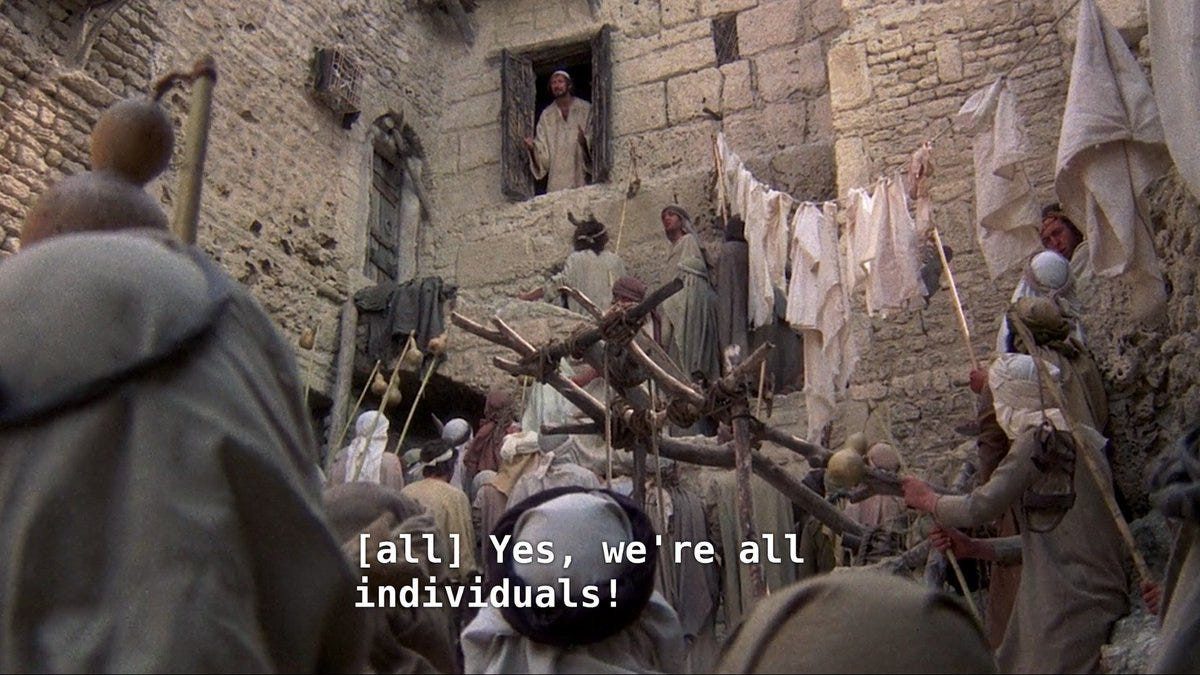I avoid conflict at all costs. Since returning to the office after the pandemic, we have used an app-based desk booking system. I've been lucky so far that I've yet to turn up and find someone squatting in my seat. But I know what my reaction would be: to go and find somewhere else to sit rather than raise the possibility of a desk-based stand-off.
I've always found conflict uncomfortable. As a pre-teen child, I'd regularly cry if adults were arguing vociferously around me - and I still haven't lost that feeling of rawness after having a disagreement with someone, even if I have better (but not complete) control over my emotions.
But of course, human beings are wonderfully contradictory creatures, so as well as being someone with an ingrained fear of conflict, I'm also desperate for debate and for people to disagree with me. Positive feedback with zero changes coming back on a document you've sent someone to review should be the ideal result. I don't think so. It sends me into a spiral of self-doubt. Even after 20 years working in agencies, nearly 15 of those providing businesses with digital planning advice, I doubt myself and my abilities.
But it's not just the self-doubt that makes me desperate for more feedback than "this looks good".
There's also one of the key reasons why I love agency life - the increased opportunities you have to collaborate on work to make it better. I'm painfully conscious that my view is only one view. And it's a very particular view because it's mine. My favourite projects, campaigns and bits of work have invariably resulted from bouncing ideas and approaches among groups of trusted colleagues.
That process of collaboration and feedback isn't always easy - sometimes it does involve some of that conflict I dread so much - but most of the time, the end product is vastly improved from trusting in the expertise and candour of your colleagues.
A multitude of factors can cause the process of developing ideas together to feel like it's not worth the effort. Some of them you can head off in advance by setting some clear ground rules of engagement:
Keep the size of the working group tight - too many people means too many opinions and inevitable deadlock.
Avoid too many senior people; they have too many strong opinions they hold with too much certainty (more on this to come).
Always assign your roles clearly in advance. One person to be in charge of pulling everything together. One key decision maker. Don't always make the most senior person that decision maker (who says seniority automatically means they're right? And I can say this as someone with a relative level of seniority).
There are plenty more ways of structuring teams and informal working groups to ensure excellent results and avoid inertia and stasis.
Even the most comprehensive ground rules can't solve some of the challenges we face when working together on strategic and creative projects. Those challenges invariably stem from our innate human nature and can quickly spiral out of control if they're not sensitively managed. Two examples that some great newsletters have prompted me to think about this week.
Certainties
Firstly, we have the challenge of our certainties. We invariably think that we and only we are right. Indeed, we're often placed into situations where we must demonstrate this certainty of opinion. Parenting, leadership positions, and other times where our expertise requires us to show conviction in our arguments.
In our world of multiple clients and competing deadlines, we often need certainties to help us get by. We can't always delay decision-making to consider many different viewpoints. As George Saunders says (taken from The Marginalian newsletter), "The anxiety of living makes us want to judge, be sure, have a stance, definitively decide. Having a fixed, rigid belief system can be a great relief."
But our certainties can also be a hindrance - particularly if my certainties clash with yours and we're both convinced that our understanding of the critical strategic challenge in this brief is the right way to go.
Sometimes we need to relax our grip on our certainties. If we want to achieve an end result that truly brings in the best of everyone's thinking, we need to have the confidence to "stay unsure (that is, perpetually curious)".
Or put another way that has more practical weight in the world of agencies: aim to cultivate "strong opinions, weakly held" (thanks to the
for that one).Choose your strategic direction or creative platform and argue for it using rational, objective arguments. But you need humility, like the tortoises in We Found A Hat, to give up your position if your group wants to go a different way. It's a highly "nuanced stance", says Annie Murphy Paul. We must believe in and fight for our ideas; otherwise, we risk slipping into passive acquiescence and groupthink, the worst agency crimes. But we also need to be prepared to be wrong, spot better ideas, and keep our egos from getting in the way of picking the most effective route for the challenge at hand.
Sometimes the best direction is obvious. Sometimes it takes work to spot. But by being flexible in our certainties and prepared to disagree with each other positively, we can help minimise the amount of time we spend stuck in creative cul de sacs, endlessly circling the same ideas.
Embrace “creative abrasion”
Encouraging this kind of friction and pushback sounds counterintuitive, especially if you've spent time using brainstorms to cultivate creative ideas. One of the golden rules of brainstorms is "no black hatting". Brainstorm rules say no idea is a bad idea, to encourage everyone to share their views without fear of judgement. It's a solid rationale.
But research highlighted in the aforementioned (and excellent) Science of Creativity newsletter shows that "active debate and critique actually produce more original ideas than those who follow the no-criticism rule." This is because removing any friction or "creative abrasion" from the process is the surest way to groupthink. If a group agrees with each other and feels they've already reached the best ideas, they'll feel there's no point in continuing the creative session, and the whole thing limps to a halt. This is the worst outcome of any creative session.
As with debating our "strong opinions, weakly held", cultivating this culture of creative abrasion needs careful management. Critique can't become criticism. Any conflict must focus on the task rather than becoming personal or reflecting our relationships.
Facilitating creative sessions, like moderating panels, is an underrated skill. We think anyone can do it, but it needs a very active presence and careful reading of the mood of a room. These sessions can quickly go south if you're not looking for red flags and keeping everyone on track. This active presence will be even more critical once you introduce the opportunity for critique and feedback on ideas. Build in some exercises where groups pitch ideas to each other, inviting feedback - making it a group dynamic removes any personal attacks from the equation. It's always a good test of an idea to see if it is "pitch-able", even if you only develop the pitch in a rough, rudimentary format.
One of the other reasons Annie Murphy Paul highlights that we need to avoid convergence at all costs is to encourage everyone to bring their own "distinctiveness" into any strategic or creative process. We're all different, developing our own stories, certainties, and "characteristic ways of responding to the world". But in group situations, our mammalian desire to fit in, to be part of the tribe kicks in. We should encourage every team member, from bottom to top, to bring part of their authentic selves into every creative process. Those of us working in comms in agency land are already statistically representative of only a tiny slither of society. Focusing on what we have in common will narrow that perspective.
In lieu of bringing in an outside perspective, through focus groups or co-creation sessions (not always practical because of budget or timings), we can at least encourage people to share and celebrate their differences to create some different points of view and avoid reaching bland convergence too quickly.
Finally, when it comes to avoiding rapid convergence at all costs, research also tells us that the best, most original ideas come at the end of any creative process. You must force yourself to get through the obvious to find the good stuff. This will feel uncomfortable and difficult, but as with giving up on our certainties, the end result will be much better from putting ourselves in this more vulnerable position.
Feeling vulnerable, relaxing our grip on our certainties, getting comfortable with feeling uncomfortable, cultivating "creative abrasion" - all these states of being are challenging to develop. They run counter to our natural instincts and our ingrained ways of being.
But embracing these challenges and forcing ourselves into these situations for short periods leads to better results in our campaign and creative development. It requires careful management and a degree of psychological safety - we can't let abrasion turn into all-out conflict or for conflict to become the default mode of interaction. But by cultivating these relationships and trusting our strategic and creative partners, you can overcome our natural psychological barriers and generate fresher, more distinctive and more effective results.
I think I'm there - I'm still afraid of conflict in most situations. But I love, love, LOVE to be challenged. And sure, there can be a thin line between challenge and conflict, but when you’re in a space where you can rely on your colleagues to stay on the right side of that line, you can feel comfortable that challenge is going to take you to a better place.






